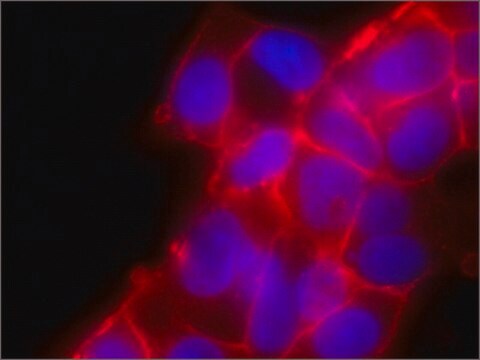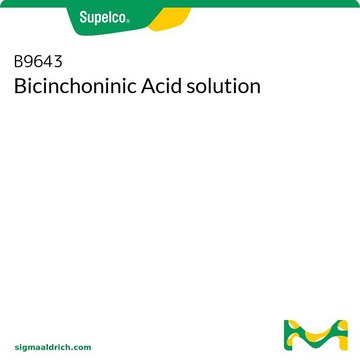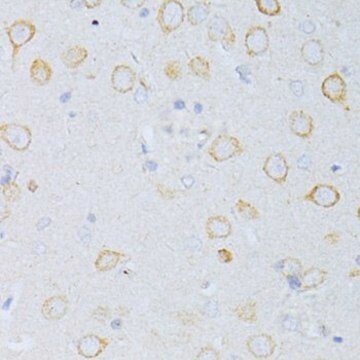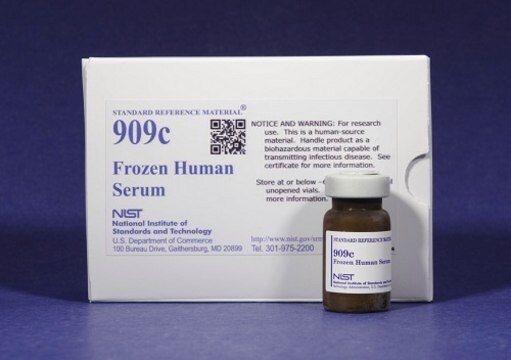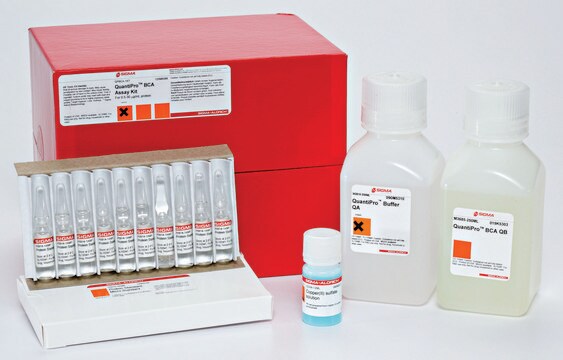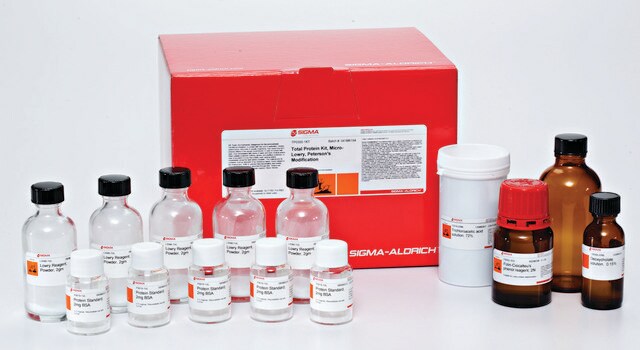SRP2084
VHL human
recombinant, expressed in insect cells, ≥70% (SDS-PAGE)
Synonym(s):
HRCA1, RCA1, VHL1
About This Item
Recommended Products
biological source
human
recombinant
expressed in insect cells
Assay
≥70% (SDS-PAGE)
form
frozen liquid
mol wt
~26 kDa
packaging
pkg of 5 μg
storage condition
avoid repeated freeze/thaw cycles
concentration
650 μg/mL
color
clear colorless
NCBI accession no.
UniProt accession no.
shipped in
dry ice
storage temp.
−70°C
Gene Information
human ... VHL(7428)
Biochem/physiol Actions
Physical form
Preparation Note
Storage Class Code
10 - Combustible liquids
WGK
WGK 1
Flash Point(F)
Not applicable
Flash Point(C)
Not applicable
Choose from one of the most recent versions:
Certificates of Analysis (COA)
Don't see the Right Version?
If you require a particular version, you can look up a specific certificate by the Lot or Batch number.
Already Own This Product?
Find documentation for the products that you have recently purchased in the Document Library.
Articles
We present an article about how proliferating cells require the biosynthesis of structural components for biomass production and for genomic replication.
Our team of scientists has experience in all areas of research including Life Science, Material Science, Chemical Synthesis, Chromatography, Analytical and many others.
Contact Technical Service


